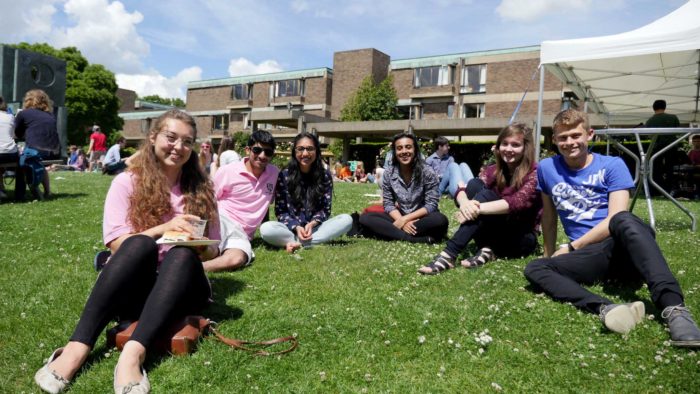Our story
Founded by Royal Charter in 1960, Churchill College is one of the newer Cambridge colleges.
It was created to embody the vision of Sir Winston Churchill for how higher education can benefit society in the modern age.
Though the world in which Churchill College was founded was very different from our present, the desire to make a difference to the world, through providing the best education and support for the brightest academic minds, remains constant. Our meritocratic approach to admissions means our track record for intake from schools in the state sector has been at three-quarters or above for years.
The College exists to enable the fulfilment of potential, to help students thrive, and equip them to make a contribution to meeting the challenges of the day.
Churchill College has a strong sense of community. Being able to guarantee all undergraduates on-site accommodation for the duration of 3 or 4 year courses helps contribute to that sense of belonging.

We have become established as a diverse, international community. We were the first to admit women to a Cambridge College, and continue to work hard to raise the profiles of our talented female members.
We have consistently worked to ensure that everyone we admit has the potential to thrive in Cambridge, whatever their background, and year on year we maintain one of the highest state school admissions percentages among Cambridge Colleges.
And even though our foundation specifies a focus in mathematics, science and technology, with 70% of our students studying subjects in these fields, we have a thriving arts community.
Our carefully curated art collection, from sculptures to paintings, textiles to prints, serve to enhance the buildings and create an environment of engagement, reflection and inspiration. We have a thriving musical community, both via our music society ChuMS and through the use of our very own Music Centre complete with recording studio on site. We have perfoming arts spaces as well as extensive sports facilities all on site.
“The look of the College speaks a lot to its accessibility… When you’re at Cambridge your College is kind of your home, having that level of comfort with it is just really important.”
Thea, undergraduate
